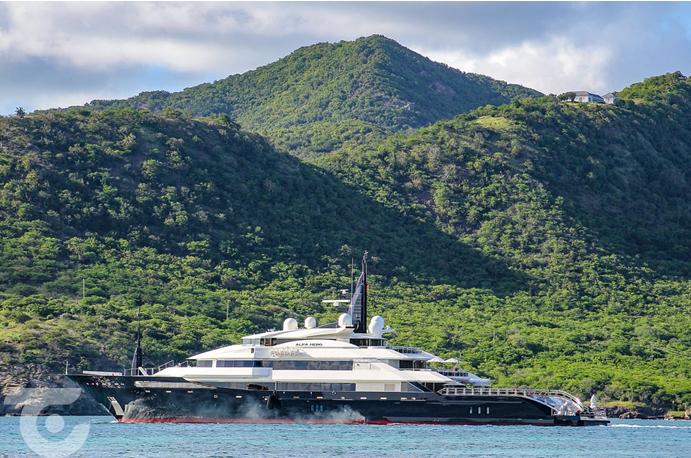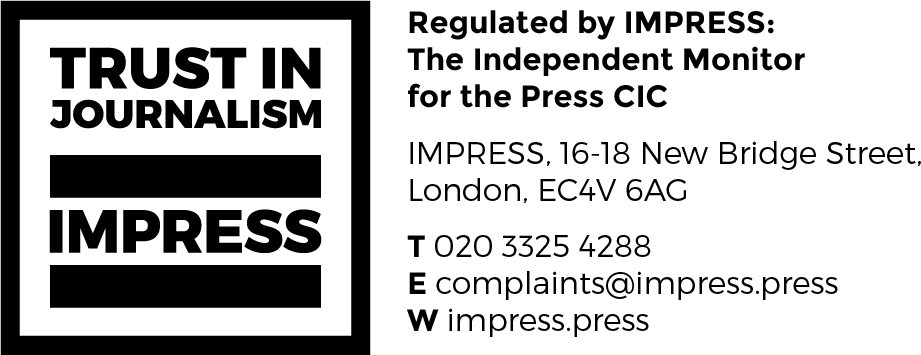Judicial auctions in the Caribbean – Alfa Nero

The case of Alfa Nero has gathered a lot of media attention recently – with more to come. The 270ft (82m) superyacht has been abandoned by its owner in Falmouth Harbour, West Indies (pictured) for more than a year. The government of Antigua and Barbuda recently (controversially) passed a law that has seen the yacht seized and offered for sale, with the proceeds going to the state. It has now been brought to auction, which closed on Saturday, April 8th.
Believed to belong to a sanctioned Russian oligarch, Alfa Nero was put up for judicial auction after the owner failed to come forward following numerous attempts by the government to make contact. Ambassador Lionel Hurst, chief of staff, Government of Antigua and Barbuda tells Superyacht Investor that the government has already received “serious offers” of more than $50m for the vessel.
“We have received bids from two candidates, one of $54m and the other $74m,” says Hurst. “One of the bidders has already sent a deposit of $10m to show how serious he was.” According to Dennis Causier, senior superyacht specialist, VesselsValue the superyacht is worth a cool $79.5m (€75.3m).
The auction follows a turbulent timeline for the superyacht. Having been left in the harbour since February 2022, the government made several public pleas to find the owner and have the yacht removed, deeming it a danger to people and other yachts in the harbour. However, no one came forward.
Hurst said the crew and fuel companies are owed around $500,000. “So, after the sale, we will ensure the proper parties are paid and the rest will go to the government of Antigua and Barbuda,” he tells SYI.
According to a government statement, unnamed international law enforcement agencies have identified the beneficial owner of the vessel as the Russian oligarch, Andrey Grigoryevich Guryev and his daughter, Yulia Guryeva-Motlokhov. This was after a Russian businessman named Alexander Mavrodi claimed the yacht belonged to him. “The suggestion that the vessel is owned by a Mr Alexander Mavrodi is unsubstantiated, indicating that it is either a hoax or it is a deliberate fabrication,” said the government statement.
The statement added that if by March 31st, no one proves they are the beneficial owner, the yacht will be “declared as abandoned”. It will then be seized and “offered for sale by auction in the interest of the well-being of the economy and the people of Antigua and Barbuda”. Hurst confirmed that no one has come forward and the sale will go ahead via judicial sale.
To do this, the government of Antigua and Barbuda passed the Port Authority Amendment Act 2023. This states that if the vessel has as a result of sanctions been detained, seized or abandoned, the government can take possession and sell the yacht if it poses an imminent threat to the safety of others or likely to cause environmental damage. Once all expenses are paid, the proceeds of the sale will go to the Consolidated Fund of Antigua and Barbuda.
Sarah Allan, partner, Penningtons Manches Cooper tells Superyacht Investor that this is an unusual situation. “The notice confirms the yacht is being sold pursuant to the Act as opposed to, by example, the exercise of a maritime lien pursuant to the Arrest Convention. The amendment appears to widen their existing legislation to effectively treat such an abandoned yacht as a wreck under the Act. However, the amendment has also caused some controversy where it provides that the sale proceeds may, once expenses are paid, be forfeited to a consolidated fund,” she says.
Allan explains that a judicial sale is where a ship, having been detained or arrested, is sold by a court with clean title, free and clear of any mortgage and of any charge. “A concern for a purchaser is that the yacht could be subject to arrest in other jurisdictions if this sale process is not recognised,” she says.
It is quite rare for a title to be challenged following a judicial sale, but it is not always plain sailing. The UN Information Service says that while the international community has harmonised rules on the arrest of ships, “much less progress has been achieved in harmonising rules on the judicial sale of ships, which remain subject to widely varying domestic laws”. To tackle this, a new convention is being signed. The UN Information Services expect that Beijing Convention “will enhance legal certainty by creating a uniform regime for the international effects of judicial sales of ships”.
However, the draft of this convention says that “a judicial sale of a ship shall not have this effect in a state if the other State Party determines that the effect would be manifestly contrary to the public policy of that other State Party”. This means that if one state conducts a judicial sale of a ship, another state can refuse to recognise the sale if it determines that the effect of the sale would go against its public policy.
Allan explains that even without this convention coming into force there is a prospect that the new owner’s title could be challenged based on public policy grounds if detained in countries that are not aligned to such sanctions. The Port Authority Amendment Act also expressly refers to sanctions imposed by any ally or trading partner of Antigua and Barbuda.
There is a possibility of the decision being challenged, but that is a matter of local law. “For instance, was there in fact, “an imminent danger” triggering the right to serve a 10-day notice,” she says. “Alternatively, the rightful owner might bring a claim in the coming years to recoup the sale proceeds. If such actions are initiated, the final Court of Appeal would in fact be the Judicial Committee of the Privy Council.
“Or the buyer could find that title is challenged, although perhaps less likely if the yacht circulates within territorial seas of countries supporting the sanctions. Inevitably there is a degree of risk.”
The amendment and sudden sale might seem draconian, says Allan. “But a country whose economy thrives on tourism can Ill afford the risk, and potential liabilities of an uninsured deteriorating mega yacht in their waters, particularly as the hurricane season approaches.”
Hurst dismisses suggestions the owner may take legal action to prevent the sale. “We are acting in line with our own laws and a with international maritime laws,” he says. “This is the right thing for us to do and we will continue to act in the interests of the people of Antigua and Barbuda.”
Pictured is Alfa Nero in Falmouth Harbour, Antigua and Barbuda. Courtesy of Merijn de Waard, SuperYachtTimes.
Subscribe to our free newsletter
For more opinions from Superyacht Investor, subscribe to our email newsletter.

